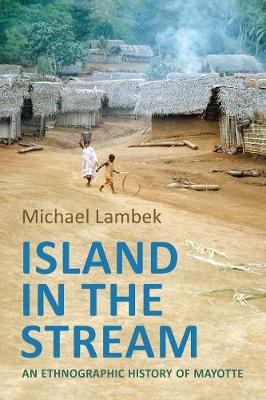Anthropological Horizons
2 total works
On the East African island of Mayotte, Islam co-exists with two other systems of understanding and interpreting the world around its inhabitants: cosmology and spirit-mediumship. In a witty, evocative style accessible to both the specialist and non-specialist reader, Michael Lambek provides a significant contribution to writing on African systems of thought, on local forms of religious and therapeutic practice, on social accountability, and on the place of explicit forms of knowledge in the analysis of non-western societies. The "objectified" textual knowledge characteristic of Islam and of cosmology is contrasted with the "embodied" knowledge of spirit possession. Lambek emphasizes the power and authority constituted by each discipline, as well as the challenge that each kind of knowledge presents to the others and their resolution in daily practice. "Disciplines" are defined as an organized body of practitioners or adepts, a concept precise and useful when applied to the contexts of Lambek's own research and equally so in the study of comparable environments elsewhere.
Essential reading for those interested in the comparative study of Islamic societies, Lambek's argument directly contributes to the main anthropological arguments of the day concerning the social and cultural basis of systems of knowledge and ethnographic strategies for depicting them.
Essential reading for those interested in the comparative study of Islamic societies, Lambek's argument directly contributes to the main anthropological arguments of the day concerning the social and cultural basis of systems of knowledge and ethnographic strategies for depicting them.
Island in the Stream introduces an original genre of ethnographic history as it follows a community on Mayotte, an East African island in the Mozambique Channel, through eleven periods of fieldwork between 1975 and 2015. Over this 40-year span Mayotte shifted from a declining and neglected colonial backwater to a full d partement of the French state. In a highly unusual postcolonial trajectory, citizens of Mayotte demanded this incorporation within France rather than joining the independent republic of the Comoros. The Malagasy-speaking Muslim villagers Michael Lambek encountered in 1975 practiced subsistence cultivation and lived without roads, schools, electricity, or running water; today they are educated citizens of the EU who travel regularly to metropolitan France and beyond.
Offering a series of ethnographic slices of life across time, Island in the Stream highlights community members' ethical engagement in their own history as they looked to the future, acknowledged the past, and engaged and transformed local forms of sociality, exchange, and ritual performance. This is a unique account of the changing horizons and historical consciousness of an African community and an intimate portrait of the inhabitants and their concerns, as well as a glimpse into the changing perspective of the ethnographer.
Offering a series of ethnographic slices of life across time, Island in the Stream highlights community members' ethical engagement in their own history as they looked to the future, acknowledged the past, and engaged and transformed local forms of sociality, exchange, and ritual performance. This is a unique account of the changing horizons and historical consciousness of an African community and an intimate portrait of the inhabitants and their concerns, as well as a glimpse into the changing perspective of the ethnographer.

